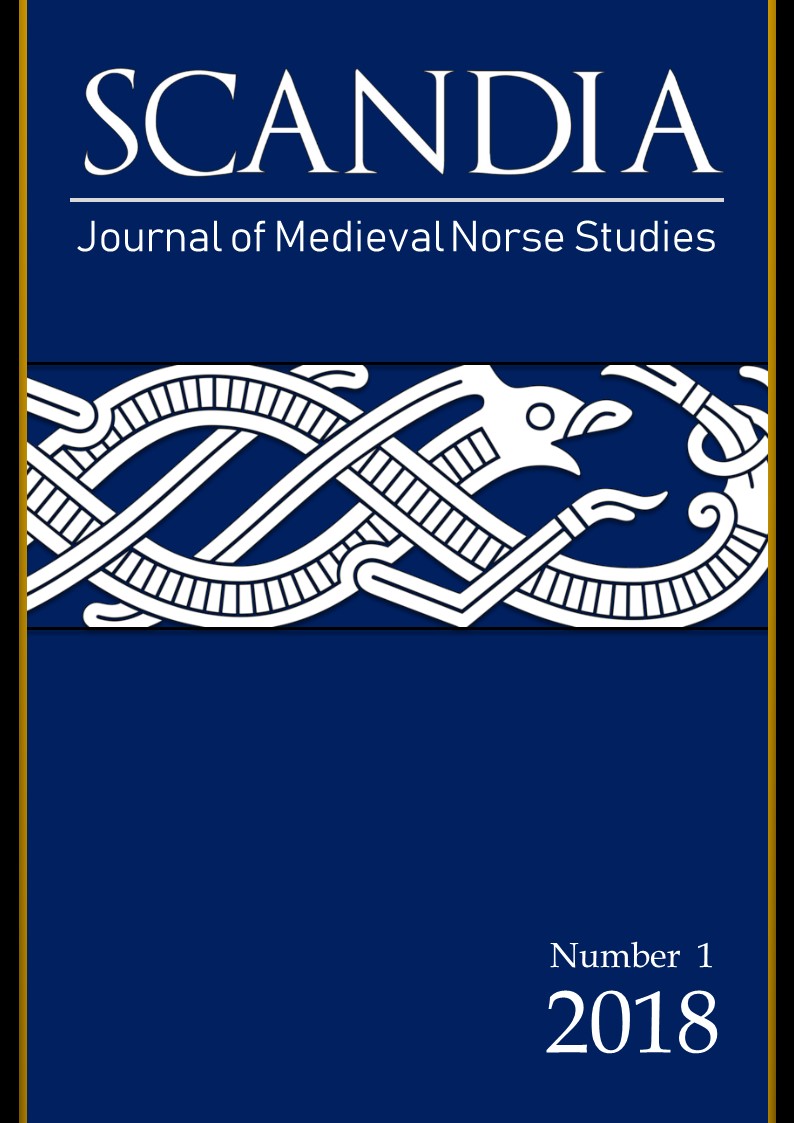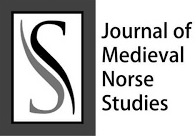And insult conquers the silence of a thousand years: A níð for Stieg Larsson and the Old Norse poetry.
Abstract
Absctract: In the Old Norse language, the unusual destructive power of the word, at the beginning only spoken, later fixed in writing, has a precise linguistic referent, the noun níð, which indicates an invective formulated in poetic form, an expression of a cultural universe where words have an evocative power, whose value and significance in terms of offence can scarcely be understood by the modern observer. The analysis will focus on the particular value of níð in Norse poetry, and will also include a comparison with the corresponding linguistic elements attested in other Germanic languages and a significant and original contemporary example that, over a thousand years after the first níð-verses, follows the theme of the particular devastating force of the poetic word in an absolutely faithful way. After the death of the Swedish writer Stieg Larsson in 1994, his lifelong companion and muse Eva Gabrielsson performed a real ritual ceremony according to the ancient Norse tradition, during which she expressed all her anger towards those who opposed and hated Stieg, declaiming a níð. She gave a detailed account of the event in the book where she wrote about her life with the writer, published in 2011. For Eva, it was not a reference to a poetic tradition, but a real reaffirmation of the ancient magical and sacred value of the verbal element.Riassunto: Nell’antica lingua norrena l’inusitato potere di distruzione della parola, inizialmente solo pronunciata prima di essere fissata in forma scritta, ha un preciso ed unico referente linguistico, il sostantivo níð, che indica un’invettiva formulata in forma poetica, espressione di un universo cultuale ove centrale è il potere evocativo della parola, il cui valore e significato in termini di capacità di offesa difficilmente possono essere compresi dall’osservatore moderno. L’analisi riguarderà il particolare valore del níð nell’ambito della poesia norrena, anche attraverso il confronto con gli elementi linguistici corrispondenti, attestati nelle altre lingue germaniche antiche, che, invece, definiscono l’atteggiamento, lo stato d’animo prodromico di un comportamento aggressivo. Soltanto in ambito nordico il profilo psicologico è già fatto concreto affidato ai versi, il cui potere è talmente penetrante da legittimare sanguinose ritorsioni da chi ne è stato oggetto e, addirittura, prescrizioni che ne vietano la composizione a pena di gravi sanzioni. Di questa particolare forza devastante della parola poetica si ha una significativa testimonianza in epoca contemporanea, che al níð fa diretto riferimento: sconvolta dal dolore per la morte del compagno di una vita, lo scrittore Stieg Larsson, Eva Gabrielsson compie una vera e propria cerimonia rituale modellata secondo l’antica tradizione norrena, durante la quale esprime tutta la sua rabbia nei confronti di coloro che hanno osteggiato Stieg, declamando un níð. Non si tratta solo di un richiamo ad una tradizione poetica ma di un vero e proprio tentativo di attualizzazione dell’antico valore magico e sacrale dell’elemento verbale.
Downloads
References
Bibliographical references:
BAETKE, W. Wörterbuch zur altnordischen Prosaliteratur. Berlin: 2005.
CLEASBY, R. VIGFUSSON, G. An Icelandic-English Dictionary. Oxford: 1874.
EINARSSON S. A History of Icelandic Literature. Ithaca-New York: 1957.
EITHUN, B. RINDAL, M. ULSET, T. Den eldre Gulatingslova. Oslo: 1994.
FINLAY, A. FAULKES, A. Snorri Sturluson. Heimskringla I. Exeter: 2011.
FINSEN, V. Grágás: Islændernes lovbog i fristatens tid. Copenhagen: 1852.
FRITZNER, J. Ordbog over det gamle norske sprog. Christiania: 1891.
GABRIELSSON, E. Stieg and Me. Memories of my life with Stieg Larsson. London: 2001.
HALLDÓRSSON, Ó. Óláfs saga Tryggvasonar en mesta. Copenhagen: 1958-2000.
KUHN, H. Edda, Die Lieder des Codex Regius nebst veerwandten Denkmälern. Auflage 5. Heidelberg: 1983.
NORDAL, S. Egils saga Skalla-Grímssonar. Reykjavík: 1933.
Ordbog over det norrøne prosasprog. Den arnamagnæanske commission. Copenhagen. Extraído de: <http://www.onp.ku.dk.>. Acesso em: 15 mar. 2018.
SVEINSSON, E. Ó. Vatnsdœla saga. Reykjavík: 1939.
WHALEY D. Skaldic Poetry of the Scandinavian Middle Ages. Poetry from the King’s Sagas 1. Turnhout: 2012.
ZOËGA G. T. A Concise Dictionary of Old Icelandic: Oxford: 1967.
Downloads
Published
Issue
Section
License
The author (s) of the original submitted undertake to comply with the following:
- All authors are publicly responsible for it.
- The authors claim that this original is their own and that they assume full responsibility to third parties, whether moral or patrimonial, by reason of its content, stating that the work does not infringe any intellectual property rights of third parties.
- The author (s) agree to the copyrights of the original to Scandia Journal, to which they grant permission for its reproduction, editing and online publication.
- The author (s) grant their copyright of their original to the Scandia Journal, licensed under the Creative Commons Attribution License, which allows the sharing of this work with the acknowledgment of their authorship.
- The author (s) have permission and are encouraged to cite and distribute their original.



